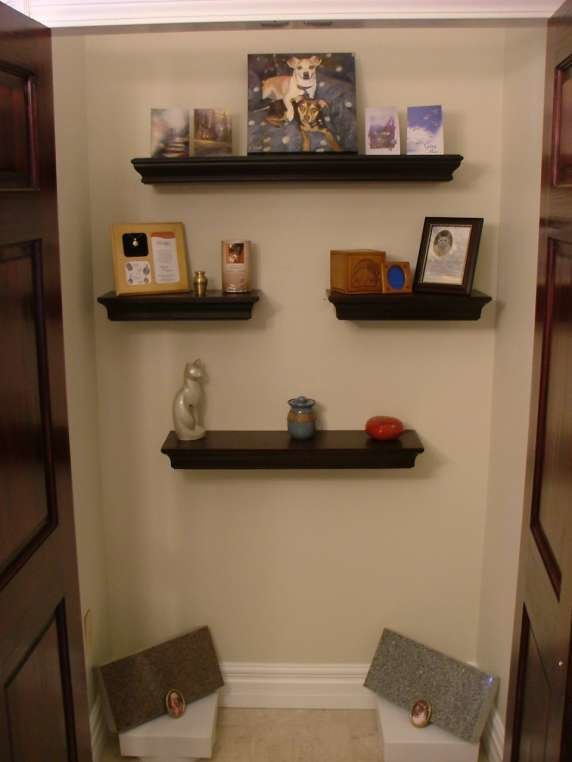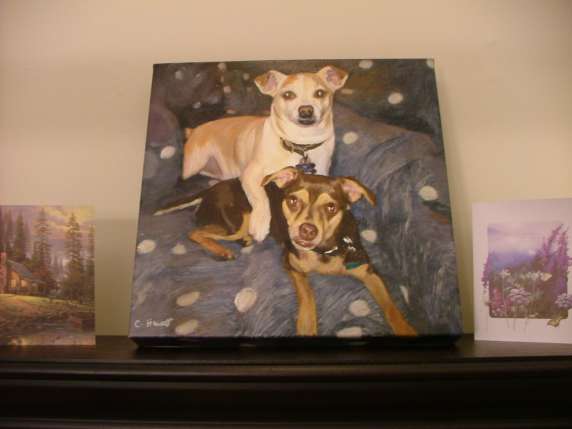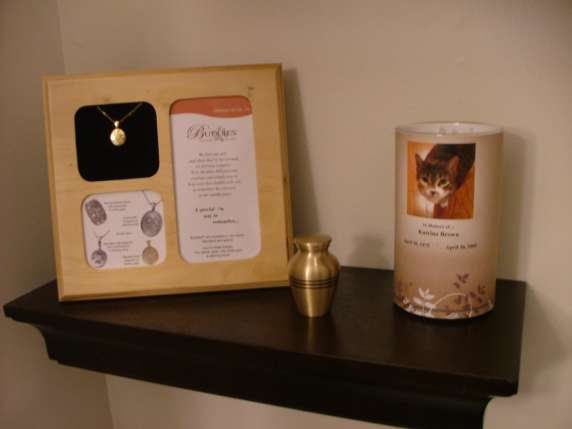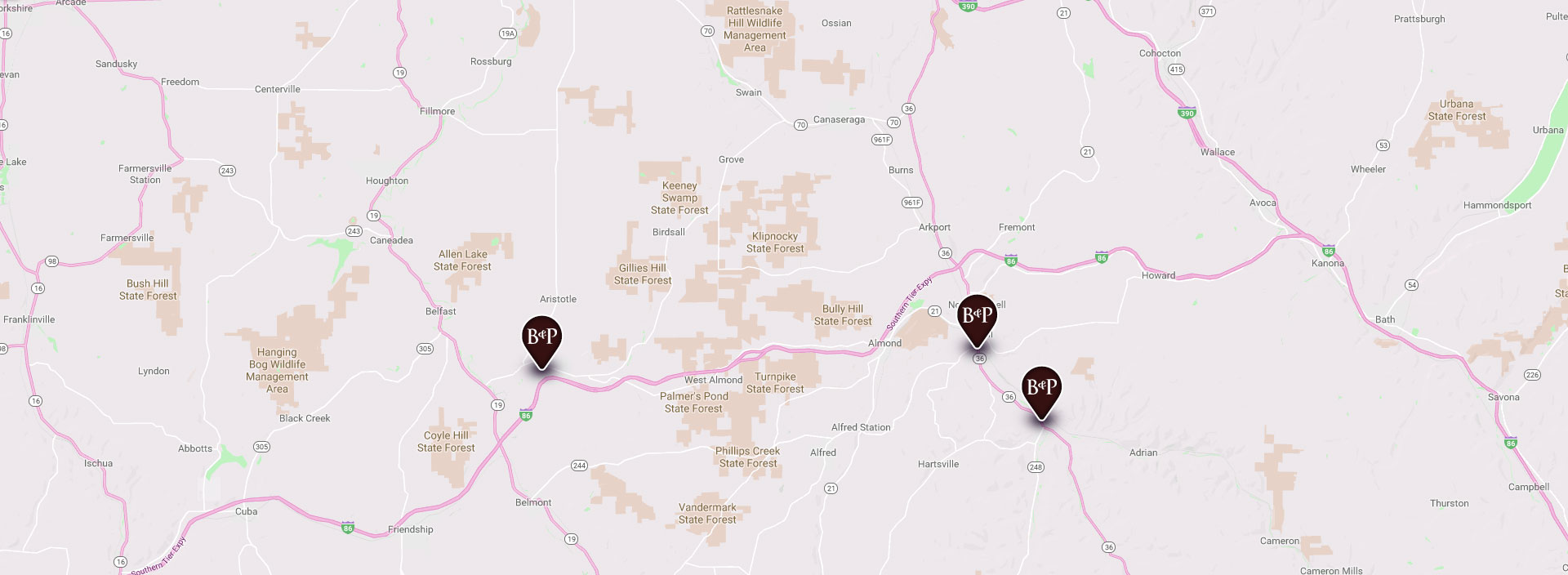Pet Monuments
As a pet is part of our family the term "man's best friend," reminds us of their love, and constant companionship and acceptance. Our pets, we take for a walk, they listen when we need someone to talk to, and even guard our house. Our pets can also lower our blood pressure, change our heart rate, and most importantly alleviate feelings of chronic loneliness. With your capacity to love your pet comes the necessity to grieve when that "best friend" passes away. The death of a pet is a difficult experience that we as pet owners will all face.

Unfortunately, we hear a lot of times that our pet is "just a dog" or "just a cat"; when in fact they are true members of the family. With the death of a pet, families experience a great loss. When we are faced with the loss of our pet, society often denies us the need to grieve. We may even be criticized for openly and honestly expressing our feelings. Because of this, you may bury, or even try to ignore your grief. This is not good; as grief should be expressed to the fullest extent. Although with the possibility of being denied understanding and support, your family needs to grieve the death of their pet. Grieving means to express your feelings, regardless of the loss being a person or a pet family member.
Others may say hurtful statements to you when your pet dies. These comments are meant to diminish the loss by providing simple solutions to an event many do not understand. Comments like: "It was just a dog," or "You can always get another one," or "Be glad you don't have to take care of him anymore," are not constructive. Instead they hurt and make your family's journey through grief more difficult.
Memories are very important and helpful when your pet dies. It is important to share these memories as a family. Your pet entertained, comforted, frustrated and provided unconditional love to you and your family. These memories bring laughter, smiles and sometimes sadness. The memories were made in love, and death can never take that away.
When your pet dies, you may experience a variety of emotions including: confusion, disorganization, sadness, bad emotions or guilt. It is important that you feel and experience these emotions, and disregard anyone who tells you otherwise. Do not “overthink” your response as they are normal and a healthy part of the grieving process. Each of us are unique individuals and have our own special relationship with our pet, thus each response will be different. It is important that within the family, each person is allowed to show and share their response and to respect one another’s need to grieve in his or her own way.
With the love you had for your pet, there is no decision more difficult than whether or not to euthanize. It is critical that you consult with your veterinarian to determine when and if euthanasia is to be done especially if your pet is in agonizing pain or the quality of life has deteriorated. With advancements in modern medicine euthanasia can end needless suffering for both you and your pet. The intravenous drug used for euthanasia does not cause pain. After visiting with your veterinarian, it is important to make your decision based on your own good judgment and not someone who is not as close to your pet as you. As you have always treated your pet with gentleness and love, you will make a wise choice based on the reality of your pet’s condition. As important as the decision it is to euthanize, is the decision whether to be or not be present when you pet is euthanized. Again, this is a decision that only you as your pets caregiver can make. Some owners choose not to be present and that is alright. You need to do what you feel is right for you and the family. Whichever choice you make, it is important to spend special time saying "good-bye" to your pet whether this is before or after the euthanasia. Even if you are not in the room during the euthanasia, you may want to go in afterwards as say your “good-byes”.

A problem a family often encounters is the temptation to run out and get another pet right away. And many times you are often encouraged by family and friends who mean well. Although it may sound like a good idea at the time, you should be careful not to “replace” your pet to soon. You and your family need some time to grieve and to heal following the death of your beloved pet. A new pet requires your family’s energy and attention which at some point you may be ready and willing to give. However, immediately following the death of your pet, you should allow the family to grief.

One must be careful and attentive as replacing your pet to soon may send a message to a child that when they experience a loss all that you have to do is buy another one. What all this does is take away the significance of your pet that has just died. There is no timetable for when to get a new pet, but when in doubt, the best advice is to wait. Allow additional healing to occur. And when the family is ready for a new pet, involve the entire family. You will know when the correct time has come to get another pet. Remember, you are not replacing your pet that has passed away but opening your heart to another pet to make new, and cherishable memories.
Brown & Powers offers a wide selection of pet remembrance products. Call to set up an appointment or stop in for more information.




